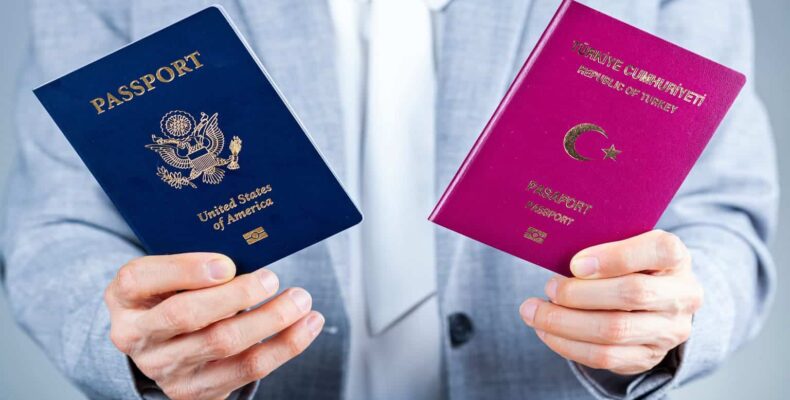Dual Citizenship Process for South American Countries: A Complete Guide
Thinking of holding two passports? Dual citizenship can offer expanded travel freedom, access to new job markets, education opportunities, and stronger ties to your heritage. For individuals with roots or interests in South America, many countries in the region allow dual citizenship—but each has its own process and legal requirements.
Whether you’re seeking citizenship by descent, naturalization, or marriage, this guide outlines everything you need to know about acquiring and managing dual citizenship in South American countries, and how Pac Signing Services can help streamline the paperwork and authentication process.
What Is Dual Citizenship?
Dual citizenship means you are a legal citizen of two (or more) countries at the same time. You enjoy the rights and responsibilities of each country, such as voting, working, owning property, and accessing government services.
However, managing dual citizenship also requires understanding each country’s legal stance on:
- Military service
- Tax obligations
- Travel documentation
- Diplomatic protections
General Paths to Dual Citizenship
There are typically three primary pathways to dual citizenship in South America:
- Citizenship by Descent (Jus Sanguinis)
If you have a parent or grandparent born in a South American country, you may qualify directly. - Citizenship by Naturalization
After residing legally in the country for a specified time (usually 2–5 years), you may apply. - Citizenship by Marriage
Many countries reduce the residency period if you’re married to a citizen.
Country-by-Country Dual Citizenship Overview
Argentina
- ✅ Allows dual citizenship
- Naturalization: After 2 years of continuous legal residence.
- By descent: No generational limit if proof of Argentine ancestry is established.
- No renunciation required of previous nationality.
Brazil
- ✅ Allows dual citizenship
- Naturalization: 4 years of legal residence; reduced to 1 year for those married to Brazilians or with Brazilian children.
- Descent-based citizenship possible through parents.
- Must use a Brazilian passport when entering or exiting Brazil.
Chile
- ✅ Allows dual citizenship
- Naturalization: After 5 years of permanent residence.
- By descent: Through Chilean parents or grandparents.
- No renunciation required.
Colombia
- ✅ Allows dual citizenship
- Naturalization: 5 years of residence; 2 years if from another Latin American country.
- Descent: If born abroad to Colombian parents, registration is required.
- Must use Colombian passport in Colombia.
Ecuador
- ✅ Allows dual citizenship
- Naturalization: 3 years of residence; 2 years for citizens from Latin America or Spain.
- By descent: Automatic for children born to Ecuadorian parents abroad.
- Treaties simplify dual citizenship for some Latin countries.
Peru
- ✅ Allows dual citizenship
- Naturalization: 2 years of residency.
- Descent: Citizenship by parentage recognized.
- Required to declare foreign nationality to Peruvian authorities.
Uruguay
- ✅ Allows dual citizenship
- Naturalization: 3 years of residence (if married with a Uruguayan spouse), or 5 years for single applicants.
- Differentiates citizenship and nationality, but both are protected.
Paraguay
- ⚠️ Limited dual citizenship
- Only allows dual nationality with countries that have treaties (e.g., Spain, Italy).
- Naturalization: After 3 years of residence.
- May require renunciation of other nationalities.
Venezuela
- ✅ Allows dual citizenship
- Naturalization: 5 years (reduced for spouses and Latin American nationals).
- Descent: Through Venezuelan parents.
- Must register and use a Venezuelan passport within the country.
Required Documents for Dual Citizenship Applications
While exact requirements differ, most countries require the following:
- Certified copy of birth certificate (apostilled)
- Proof of descent (parent/grandparent birth certificates)
- Marriage certificate (if applying through a spouse)
- National ID or passport copies
- Proof of residency or legal immigration status
- Police clearance certificate
- Naturalization application forms (translated and notarized)
How Pac Signing Services Helps You Through the Process
At Pac Signing Services, we make the dual citizenship process easier and faster by assisting with:
✅ Document Authentication
We help notarize, apostille, and certify the documents required for your application, including:
- Birth certificates
- Marriage licenses
- FBI background checks
- Identity documents
- School records and more
✅ Translations
Many South American governments require official Spanish or Portuguese translations of documents. We partner with certified translators to ensure compliance.
✅ Remote Online Notarization (RON)
Can’t make it in person? Our licensed notaries offer secure online notarizations, valid in the U.S. and accepted internationally.
✅ Mobile Services
Located in Oregon or Washington? We offer mobile notary services that come to your location—saving you time.
Final Tips for Applying
- Always verify current laws with the consulate or embassy. Laws change!
- Organize your documents early, especially if they need apostilles.
- Start the process in the U.S. before you travel. You’ll save time and headaches.
- Use services like Pac Signing to ensure your paperwork is accepted the first time.


